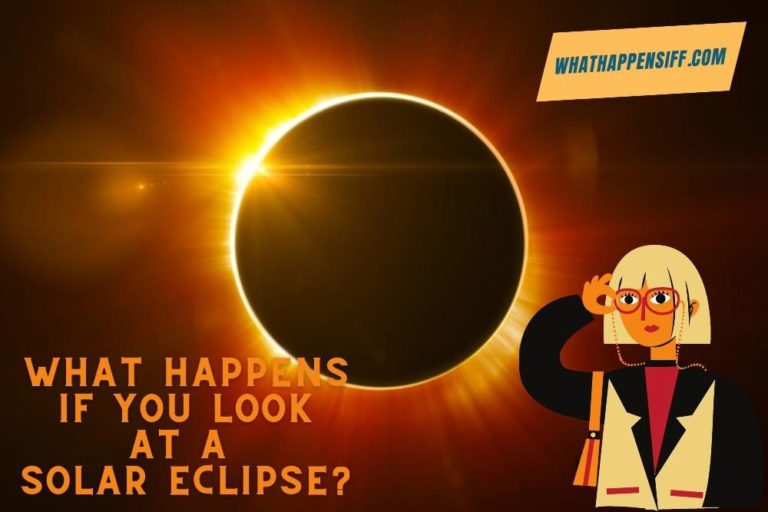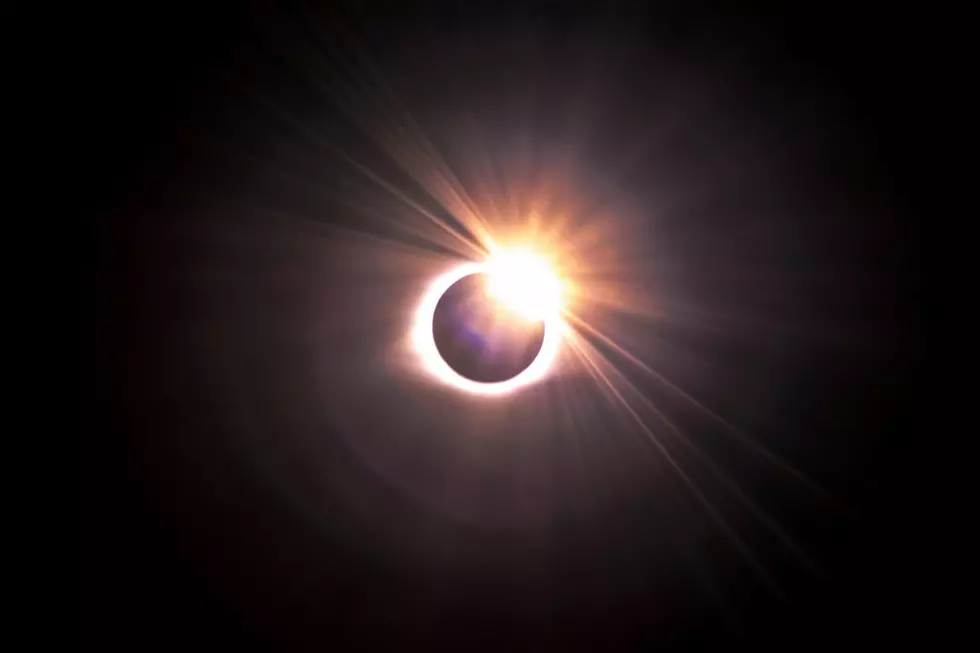Have you ever been tempted to gaze directly at the sun during a solar eclipse? While the celestial phenomenon of a solar eclipse can be breathtaking, looking at it with the naked eye can lead to serious consequences for your vision. The allure of witnessing the moon perfectly align with the sun often blinds people—sometimes quite literally—to the potential dangers. Solar eclipses are a rare cosmic event, but they come with significant risks if viewed improperly.
When you look directly at the sun during a solar eclipse, the concentrated solar rays can cause permanent damage to the retina, known as solar retinopathy. This condition can lead to partial or total blindness, and the effects may not always be immediate. The risk increases during an eclipse because the sun's brightness is temporarily reduced, making it seem safer to look directly at it. However, the ultraviolet (UV) and infrared rays are still intensely harmful to your eyes.
To safely enjoy the beauty of a solar eclipse, precautions like using certified eclipse glasses or indirect viewing methods are essential. Understanding the science behind why solar eclipses are so dangerous to the eyes can help you make informed decisions and protect your vision. This article will dive deep into the risks, safety measures, and the fascinating science behind solar eclipses. Let’s explore what happens if you look at a solar eclipse and how to enjoy this natural spectacle responsibly.
- Who Does Davia End Up With In Good Trouble
- Will Smith Cheats
- Hilaria Baldwin Children S Ages
- Hacksaw Ridge Real Guy
- Deaymond Green
Table of Contents
- Why Is a Solar Eclipse Dangerous to Your Eyes?
- What Happens If I Look at a Solar Eclipse with the Naked Eye?
- How Does Solar Retinopathy Affect Your Vision?
- What Are the Symptoms of Solar Retinopathy?
- Can You Go Blind from Looking at a Solar Eclipse?
- How to Safely View a Solar Eclipse?
- What Are Certified Eclipse Glasses and Why Are They Important?
- Are There Alternative Ways to View a Solar Eclipse?
- How Does a Pinhole Projector Work for Viewing Eclipses?
- What Are the Common Misconceptions About Viewing Solar Eclipses?
- Can I Take Photos of a Solar Eclipse Without Special Equipment?
- What Happens If I Look at a Solar Eclipse Accidentally?
- How Can I Educate Others About Eclipse Safety?
- When Is the Next Solar Eclipse and How to Prepare?
- Conclusion: Protect Your Eyes During a Solar Eclipse
Why Is a Solar Eclipse Dangerous to Your Eyes?
During a solar eclipse, the moon blocks most of the sun's light, creating an awe-inspiring spectacle. However, the sun’s harmful rays—particularly ultraviolet (UV) and infrared rays—remain potent and can cause irreversible damage to your retina. The reduced brightness of the sun during an eclipse can trick your eyes into thinking it’s safe to look directly at it, leading to prolonged exposure and increased risk of injury.
What Happens If I Look at a Solar Eclipse with the Naked Eye?
If you look at a solar eclipse without proper eye protection, the intense light can burn the delicate cells of your retina, leading to solar retinopathy. This condition can result in blurred vision, blind spots, or even permanent blindness. The damage is often painless, so you might not realize the harm until it’s too late. Protecting your eyes during a solar eclipse is non-negotiable.
How Does Solar Retinopathy Affect Your Vision?
Solar retinopathy occurs when high-intensity solar rays damage the retinal cells at the back of your eye. This damage can disrupt your central vision, making it difficult to read, drive, or recognize faces. While some people may experience partial recovery, others may face permanent vision loss. It’s a preventable condition that underscores the importance of proper eye safety during a solar eclipse.
- Jack Douglas Savant
- Who Was Married To Valerie Bertinelli
- Cobie Smulders
- What Day Is The Percy Jackson Series Coming Out
- When Is The Young Sheldon Finale
What Are the Symptoms of Solar Retinopathy?
Symptoms of solar retinopathy may include:
- Blurred or distorted vision
- Dark or yellow spots in your vision
- Difficulty focusing on objects
- Partial or complete loss of central vision
If you experience any of these symptoms after viewing a solar eclipse, consult an eye specialist immediately.
Can You Go Blind from Looking at a Solar Eclipse?
Yes, looking directly at a solar eclipse can cause permanent blindness in severe cases. The retina cannot repair itself once damaged, making the effects of solar retinopathy irreversible. Even brief exposure to the sun during an eclipse can lead to significant vision loss, emphasizing the need for proper precautions.
How to Safely View a Solar Eclipse?
To safely enjoy a solar eclipse, follow these guidelines:
- Use certified eclipse glasses that meet international safety standards.
- Employ indirect viewing methods like a pinhole projector or a solar viewer.
- Avoid using regular sunglasses, cameras, or telescopes without proper solar filters.
Taking these precautions will allow you to experience the awe of a solar eclipse without endangering your eyesight.
What Are Certified Eclipse Glasses and Why Are They Important?
Certified eclipse glasses are specially designed to filter out harmful UV and infrared rays, allowing you to view a solar eclipse safely. They are made from materials that meet international safety standards, ensuring optimal protection for your eyes. Always check for certification labels before purchasing eclipse glasses.
Are There Alternative Ways to View a Solar Eclipse?
If you don’t have access to eclipse glasses, there are alternative ways to watch the event safely. For example, you can create a pinhole projector or use a solar viewer. These methods allow you to observe the eclipse indirectly, eliminating the risk of eye damage.
How Does a Pinhole Projector Work for Viewing Eclipses?
A pinhole projector is an easy and cost-effective way to view a solar eclipse. By making a small hole in a piece of cardboard, you can project the image of the eclipse onto a flat surface. This method ensures that you don’t have to look directly at the sun, keeping your eyes safe.
What Are the Common Misconceptions About Viewing Solar Eclipses?
Some common myths about viewing solar eclipses include:
- Regular sunglasses are sufficient for eye protection (false).
- It’s safe to look at the eclipse during totality (false).
- Cameras or binoculars without filters can be used (false).
Dispelling these misconceptions is crucial for ensuring public safety during solar eclipses.
Can I Take Photos of a Solar Eclipse Without Special Equipment?
No, taking photos of a solar eclipse without specialized solar filters can damage both your camera and your eyes. Always use equipment designed for solar photography to capture the phenomenon safely.
What Happens If I Look at a Solar Eclipse Accidentally?
Accidental exposure to a solar eclipse might not cause immediate symptoms, but it can still harm your retina. If you suspect damage, seek medical attention promptly to assess the extent of the injury and explore treatment options.
How Can I Educate Others About Eclipse Safety?
Spread awareness about the dangers of looking at a solar eclipse without protection. Share educational resources, organize community events, and demonstrate safe viewing techniques to ensure everyone can enjoy the event responsibly.
When Is the Next Solar Eclipse and How to Prepare?
Check local astronomical forecasts to find out when the next solar eclipse will occur in your area. Stock up on certified eclipse glasses, practice using a pinhole projector, and educate your family and friends about eclipse safety well in advance.
Conclusion: Protect Your Eyes During a Solar Eclipse
Solar eclipses are a marvel of nature, but they come with risks that should not be overlooked. By understanding what happens if you look at a solar eclipse and taking the necessary precautions, you can enjoy this celestial event safely. Remember, protecting your eyes is essential for preserving your vision and ensuring a memorable experience.
Related Resources:


Detail Author:
- Name : Enos Hackett
- Username : americo65
- Email : erika22@yahoo.com
- Birthdate : 1994-06-14
- Address : 9114 Tanya Island Chrisland, WV 72068
- Phone : +1-718-441-1534
- Company : Lowe-Kemmer
- Job : Textile Knitting Machine Operator
- Bio : Rerum est et doloremque consequatur dicta aut. Accusantium ut ea vitae voluptates et. Sed tempora nulla est expedita autem est explicabo neque.
Socials
tiktok:
- url : https://tiktok.com/@walterl
- username : walterl
- bio : Laudantium non rerum voluptas est eos facilis. Quae alias corporis maiores cum.
- followers : 2981
- following : 2908
instagram:
- url : https://instagram.com/linda_id
- username : linda_id
- bio : Aut reiciendis est veritatis aut sit aut eum autem. Occaecati nisi ad et error.
- followers : 4345
- following : 981
facebook:
- url : https://facebook.com/walter1992
- username : walter1992
- bio : Corporis velit atque laboriosam tenetur illum id aut aut.
- followers : 4786
- following : 130
twitter:
- url : https://twitter.com/linda_walter
- username : linda_walter
- bio : Velit quia voluptas voluptatem dignissimos voluptas eos voluptatem est. Consequatur fugit voluptas provident.
- followers : 6467
- following : 2647